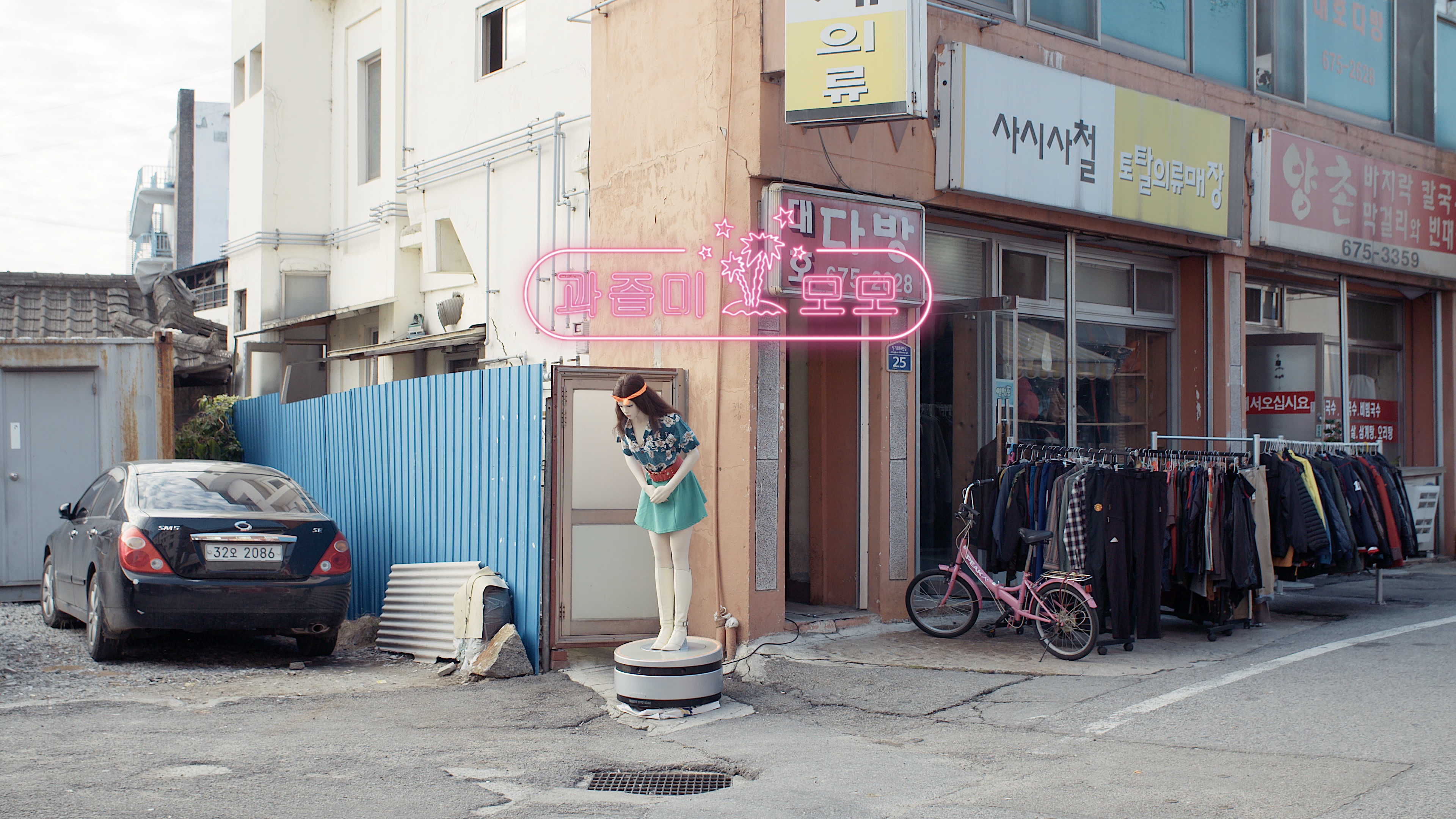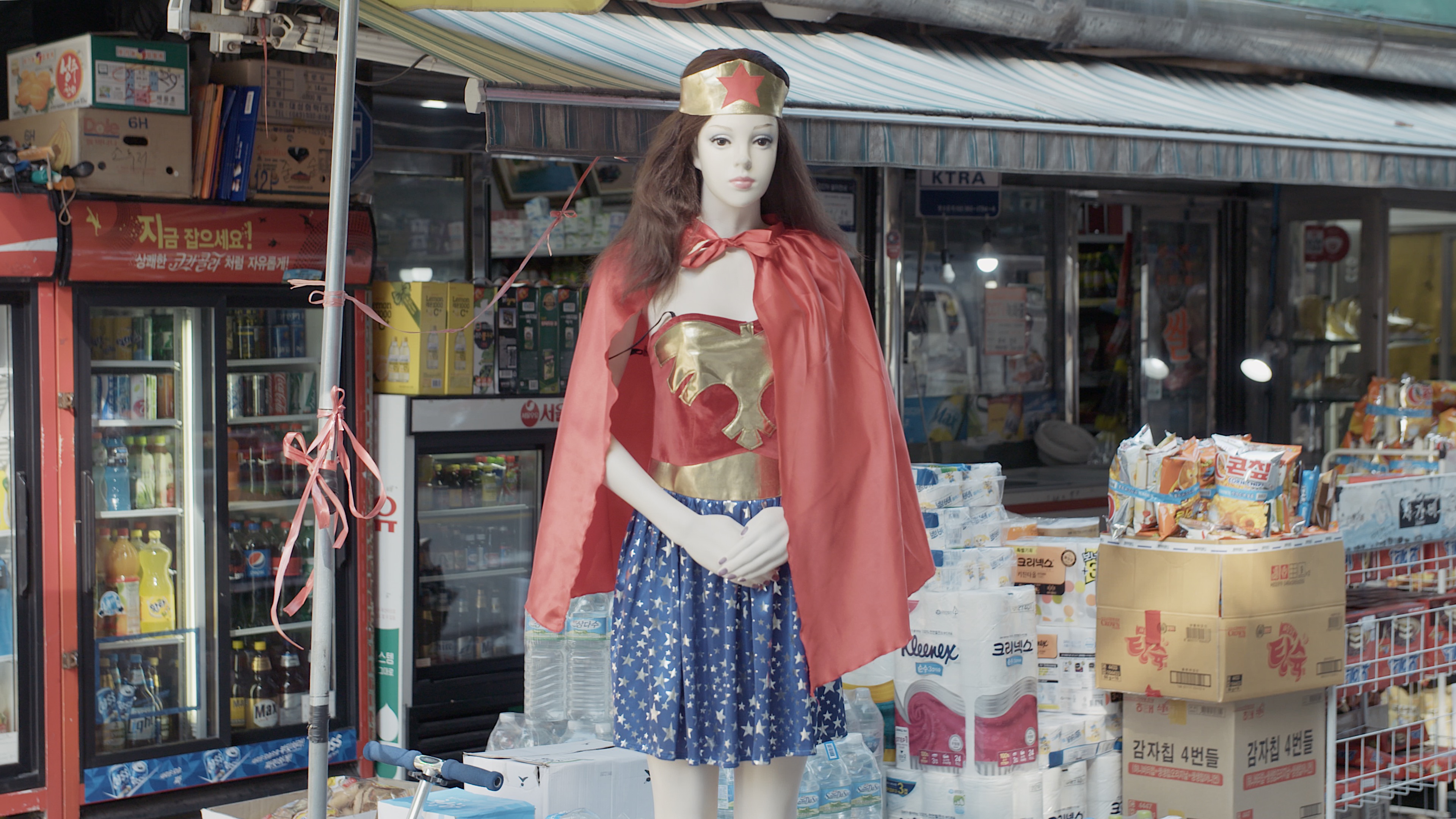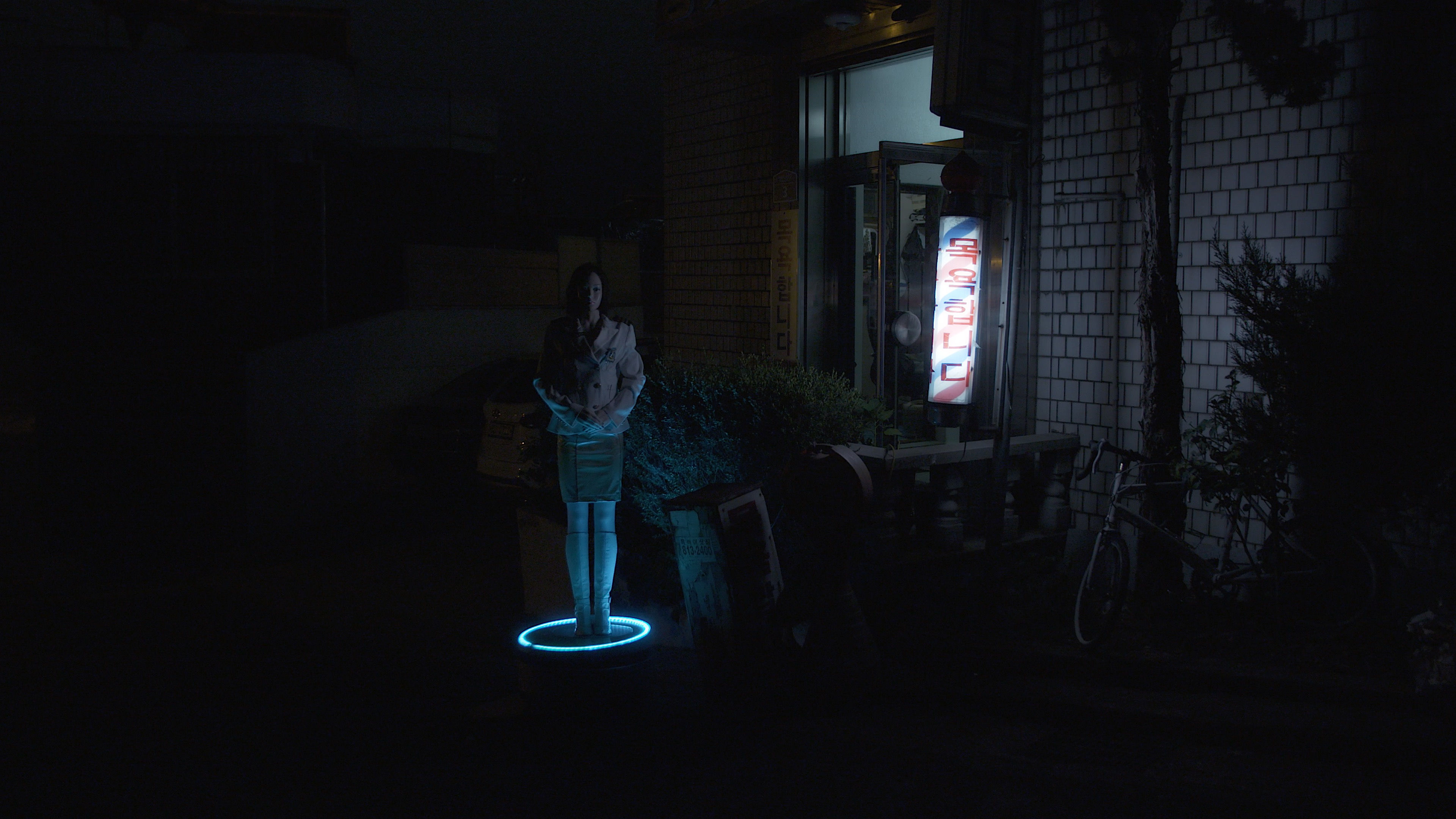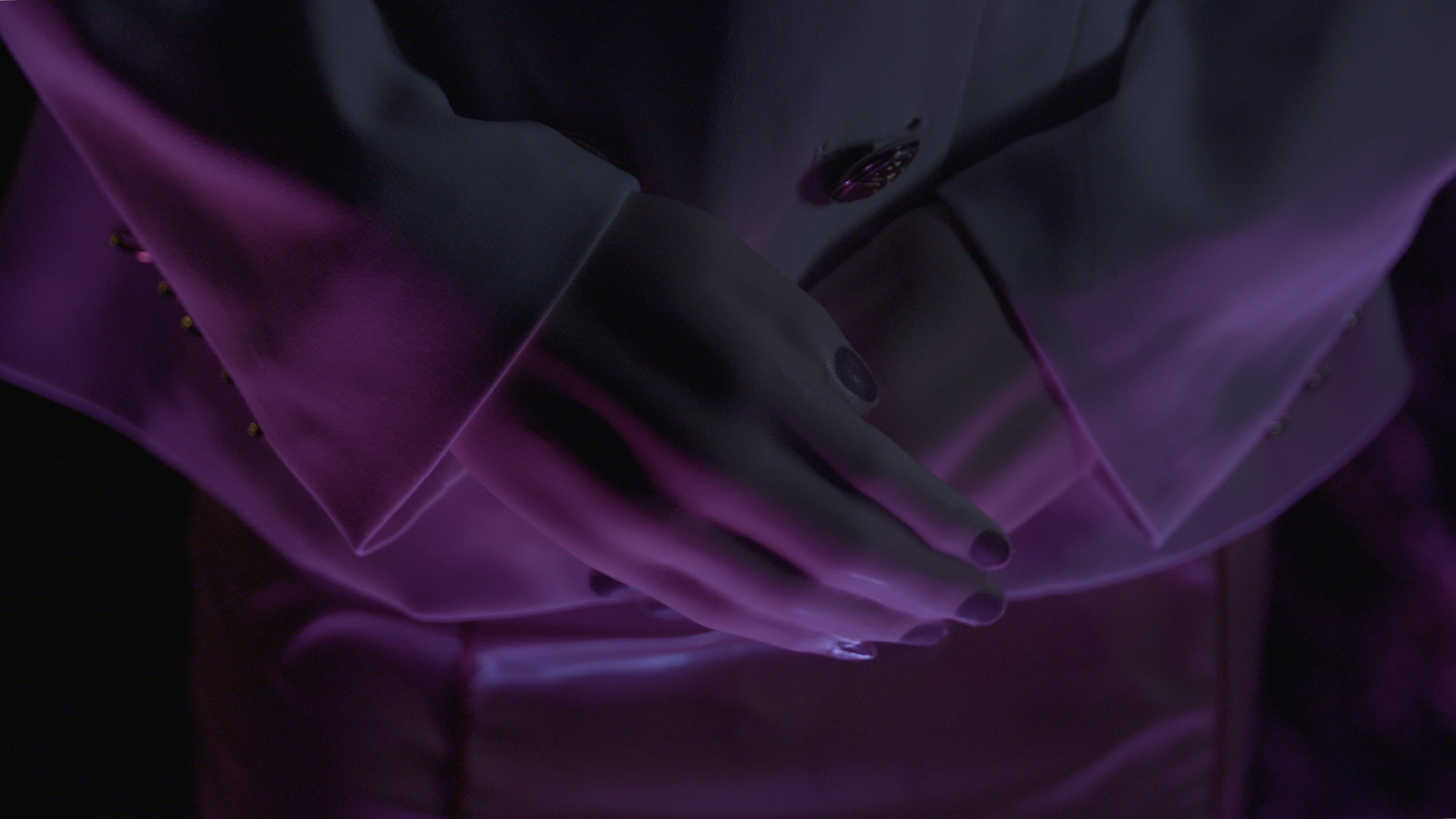“The presented mannequins are unique to Korea and the film explores through them a clever way to address gender issues in Korea without flatly denouncing the society itself,” Clauss writes in a statement.
Clauss moved to South Korea in 2005 and, since then, has documented the nation through film and photos. He first captured images of these robotic mannequins with Plastic Welcomer back in 2015. Plastic Girls is a follow-up film that dives deeper into the phenomenon, giving the robots fake voices, backstories, and motivations in an effort to humanize them.
“I keep smiling for 365 days and I make the world brighter,” says Sumin, a Wonder Woman-costumed mannequin standing outside of a convenience store. A smile is conspicuously absent from her lips.
“My boss tells me everyday that ‘you can’t work here if you don’t bow,’” says Mina, a leather-clad mannequin at a gas station. “So I do my best to lower my head as much as possible.”
While each mannequin speaks, the camera crawls along, offering closeups of their physique.
“By choosing plastic mannequins as the very peculiar main subjects of the film, I intend to make the audience feel uncomfortable,” Clauss says, “but also give them enough room to reflect on the sexualization of public space on a conceptional level rather than specifically within the context of South Korean society.”
The short film is an obvious nod towards Blade Runner, as Creators pointed out, particularly with respect to Vangelis’ iconic score, with its sizzling, ambient synth sound. The music in Plastic Girls was composed by gender studies graduate and collaborator Udo Lee.
South Korea’s mannequin trend is apparently dying out, according to Clauss. In the two years since he shot the images for Plastic Welcomer, many of the mannequins disappeared from storefronts. “We also contacted the company which made these dolls and surprisingly they had also gone out of business,” he said. To solve the problem they borrowed a mannequin and transported her around to the various locations.
So, despite the film’s cautionary tale, Plastic Girls may soon no longer exist in South Korea — but that’s not to say the issues the film raises will disappear along with them.










